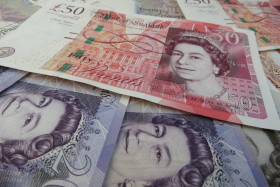The Great Britain pound was extremely weak today, falling against all other major currencies, even the Australian and New Zealand dollars, which were recovering after the losses they have posted earlier this week. Analysts say, though, that the gains of the Australian and New Zealand currencies were just a result of a short-covering rally, which is not likely to last long. As for the sterling, it performed poorly this week, and today’s positive news headlines did not change much.
The Times reported that there are signs of progress in trade talks between the United Kingdom and the European Union. The Financial Times damped optimism a bit, though, reporting that France was criticizing Britain for warnings about post-Brexit transport delays, claiming that it was an intimidation tactic. Meanwhile, UK Finance Minister Rishi Sunak unveiled the Job Support Scheme that should replace the furlough scheme which expires this month. Under the new scheme, employees who work one-third or fewer of their normal hours will get compensation from the government for the remaining two thirds. The Minister warned that the government will not be able to save every firm during the crisis:
I canât save every business, I canât save every job, no Chancellor (of the Exchequer) could, but what we can and must do is deal with the real problems that businesses and employees are facing now.
Britain recorded the highest daily number of COVID-19 cases yesterday but the record was a result not just the second wave of the coronavirus infection but also the increased number of tests.
The GfK Consumer Confidence Index rose from -27 in August to -25 in September. Joe Staton, Client Strategy Director GfK, warned, though, that it is unreasonable to expect further improvements under the current circumstances:
Consumers are as jittery as stock markets right now and as the UK government puts the brakes back on â and there may be more to come â only an unbridled optimist will bet on confidence climbing further.
The Office for National Statistics reported that the UK public sector net borrowing was at £35.9 billion in August, up £30.5 billion from a year ago. It was the third highest monthly value on a record.
GBP/USD fell from 1.2741 to 1.2717 as of 10:48 GMT today after rallying to the daily high of 1.2805 earlier. GBP/JPY was down from 134.35 to 134.12, retreating from the session maximum of 134.82. GBP/CHF opened at 1.1810, rallied to the high of 1.1858 but backed off to 1.1794 later.
If you have any questions, comments, or opinions regarding the Great Britain Pound, feel free to post them using the commentary form below.
